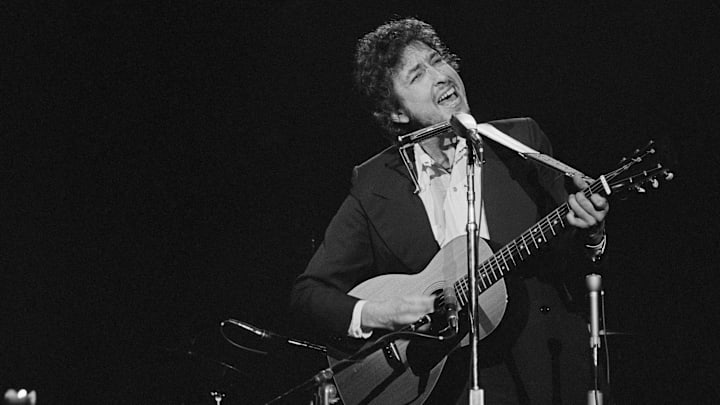“Poor Boy” by Nick Drake (1971)
Surrounding Don McLean with Judee Sill on one side and Nick Drake on the other seems a little perverse. Drake was beloved by critics and other artists during his short lifetime, but the public never seemed that interested. His third and final album, 1972’s Pink Moon, has been mentioned by many folk and folk rock artists as being a prime influence. Its simple and dark examinations of personal demons are among the most intimate collections of songs put on vinyl.
“Poor Boy” comes from the preceding album, Bryter Layter. It is not exactly a happy, peppy song cycle, but it does offer a more diverse sound, faster tempos, and occasionally upbeat messages. “Poor Boy” is a fabulous amalgamation of what made Drake a singular artist. You have to squint to see the “folk” in it. It’s a jazz tune with its sax, free-roaming piano, and gospel-tinged backing choices. Even so, the folk is there in Drake’s voice. Three years after “Poor Boy,” Drake would die of an overdose. He was 26.
“More Often Than Not” by Eric Andersen (1972)
Eric Andersen is the forgotten man of the folk movement that spanned the early ‘60s through the early ‘70s. He was another of the supposed new Dylans. He might well have been the template for the aforementioned Llewyn Davis. Like Judee Sill and Nick Drake, he was a hit with the critics but never with the public.
His 1972 album Blue River may be his most Dylanesque, and “More Often Than Not,” with its country twang and accompanying harmonica, might be the closest thing to Dylan not recorded by the man himself. It’s a poignant, personal story of a man beaten down by romantic heartbreak, yet Andersen maintains a wistful energy that prevents it from growing maudlin.
Unlike Sill, Drake, and another singer/songwriter we are about to get to, Andersen did not pass away young. He grew into something of a cult figure, continuing to release music through the decades, even after giving up residence in the USA to move to the Netherlands. Sadly, it is likely he will not receive an appropriate reappraisal until after he has left us. If you are a fan of folk music and don’t know his work, you might want to get ahead of the curve and enjoy his music while he still walks the earth.
“Pancho & Lefty” by Townes Van Zandt (1972)
I’m spelling “Pancho” the way it would come to be known when the song was covered by countless outlaw country stars – most notably in a duet between Merle Haggard and Willie Nelson. The original version – on Van Zandt’s sixth album, The Late Great Townes Van Zandt, spells in “Poncho.” That’s Townes for you. He never did things like everyone else.
Van Zandt was a legend among the country and folk communities for his songwriting prowess. He did not possess a great voice, and that may have held him back. But Townes had an ornery streak that would have probably spit in the face of success even if he had been pounding on his door. “Poncho & Lefty” (now in its original spelling) is a spellbinding tale of an outlaw and his friend, of betrayal and of compassion. Its tragic warmth comes through the simple melody line, enhanced by graceful mariachi-style trumpets, just as Johnny Cash had employed a decade earlier in “Ring of Fire.”
But the key to the song is its conception, which could only have come from a genuine poet. Pancho, the outlaw, is the tragic hero of the story, but Van Zandt chooses to close the final verse of the story with Lefty, the betrayer. “Pancho needs your prayers it’s true – But save a few for Lefty too – He only did what he had to do – And now he’s growing old.” Alcohol and heroin saw Townes grow old well before his time. He died in 1997 at the age of 52.
